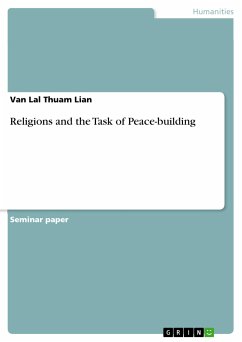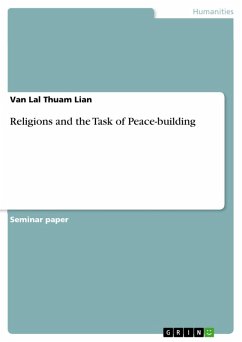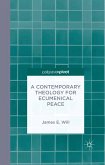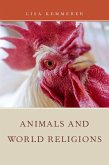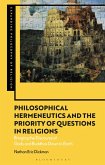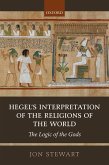Seminar paper from the year 2016 in the subject Philosophy - Miscellaneous, grade: Distinction, , course: MA, language: English, abstract: Religion is expected by the secularists to decline slowly and be privatised and so not to have any influence on the public sphere. Also after the 9/11 attack the doubt over religion as a cause of terrorism became strong and atheists claim that they are right in labelling religion as the cause of violence. Therefore, people influenced by secularism and atheism claim that religion has nothing to offer the task of peace-building in the society. This essay is an attempt to critically look into this secularisation theory on the role of religion in the task of peace-building in the world and how far it is false. The essay has three parts. The first part deals with the main ideas of secularisation theory and the atheists as they are the main groups excluding religion in the task of peace-building. The second part, in response to the secularist and atheist theory, attempts to delineate the indispensable role of religion in the public sphere and in the task of peace-building from the perspectives of the resurgence of religion, the root of war and conflict, and sociology. After arguing for the inseparableness of religion in the public sphere in the second part, the final part deals with the idea of peace-building, the contribution of religion to reconciliation and peace-building, and the challenge to the world religions in their engagement in the task of peace-building. Here, it should be acknowledged that the influence of Christianity, despite an attempt to represent different religions, will be often seen in the thought and terms used in the essay as it is written from Christian background.
Bitte wählen Sie Ihr Anliegen aus.
Rechnungen
Retourenschein anfordern
Bestellstatus
Storno

